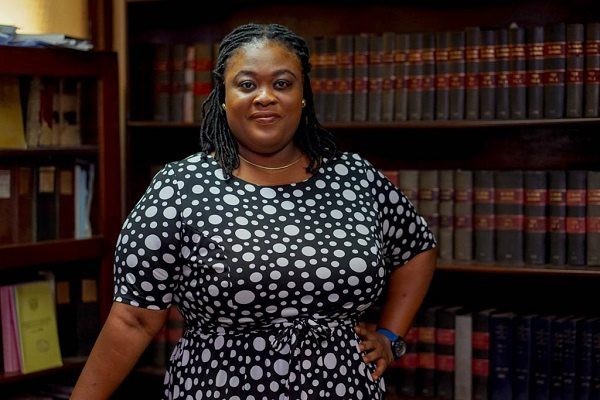The Deputy Auditor-General and Minister of Justice, Diana Asonaba Dapaah has attributed the cause of judgment debts in the country to poor implementation processes and failure to abide by A-G’s advice.
In her view, the opinion of the principal legal advisor to the state before contracts are signed is either ignored or sidestepped by government agencies.
“The A-G’s office is sometimes not involved in the negotiations and discussions leading to the execution of some agreements. In some instances, I am afraid to say, the opinion of the office is not sought prior to the execution of agreements, irrespective of the reservations raised by the office,” Ms. Dapaah added.
Speaking at a roundtable on Friday, Ms. Dapaah observed that issues that took the state to a court or arbitral tribunal were the abrogation of contractual agreements or breaches.
This, she stressed is because some government agencies and ministries involve her outfit in contractual agreements, hence, defending the state becomes difficult.
“Defending the public purse in a situation where there is little or no information or support coming from the institution or ministry involved also poses a great challenge, and we at the office of the A-G do not exist as a state machinery with a magical wand to wipe away contractual breaches or judgement debt after they have occurred.
“We may have our very rare shortcomings in meeting some procedural obligations in international arbitration proceedings which, more often than not, boil down to the fact that we are handicapped,” Ms. Dapaah said.
The deputy A-G, therefore, said there was the need to deal with judgement debts devoid of politics in order to protect the public purse for accelerated development.
The Coordinator of the Third World Network-Africa, Dr. Yao Graham, and a senior partner at AB and David law firm, Mr David Ofosu-Dorte, said there was the need to build the expertise of government officials in the entire agreement preparation process.
Dr. Graham said government contracts should have clauses that limited damages in cases of default or breach of contract or litigation.
Mr. Ofosu-Dorte, on the other hand, advocated the inclusion of private sector consultants in the preparation of agreements.
On his part, the Executive Director of CDD-Ghana, Professor Henry Kwasi Prempeh, urged the government not to sign deals in crises period, since that could yield minimal benefits.
He further advised Parliament to actively get involved in processes leading to the signing of contracts and international agreements, adding: “Parliament comes in a little too late.”
Prof. Prempeh further proposed the drafting of Ghana’s own agreement model to guide officials in the signing of contracts.
Latest Stories
-
NDC members are visibly emboldened to engage in galamsey – Ahiagbah claims
9 minutes -
‘We need to revamp MASLOC’
22 minutes -
Over-dependence on T-Bills for gov’t financing unsustainable – Standard Bank Group
47 minutes -
South African Tourism Minister visits Ghana to strengthen bilateral tourism relations
1 hour -
Supreme Court to rule on Akwatia MP’s injunction case on April 30
1 hour -
Russia says sanctions must be lifted before Ukraine maritime ceasefire can start
1 hour -
Peter Amewu released after arrest over sky train scandal
1 hour -
Adu-Boahene and wife sue AG and EOCO over GH¢200m bail condition
2 hours -
Fuel stations to operate 24 hours, NPA boss calls for security agencies’ support
2 hours -
Women’s participation key to economic growth –Yaw Njorgnab
2 hours -
Parliament passes bill to abolish E-Levy; President Mahama’s assent expected
2 hours -
NDC members involved in galamsey must be brought to book – Benjamin Quashie
2 hours -
Starting a business in Ghana still difficult – World Bank’s B-Ready 2024 report reveals
2 hours -
Kumerica is not just about hip hop – Tony Dath
2 hours -
At least 24 dead in South Korea’s ‘worst ever fires’
2 hours

